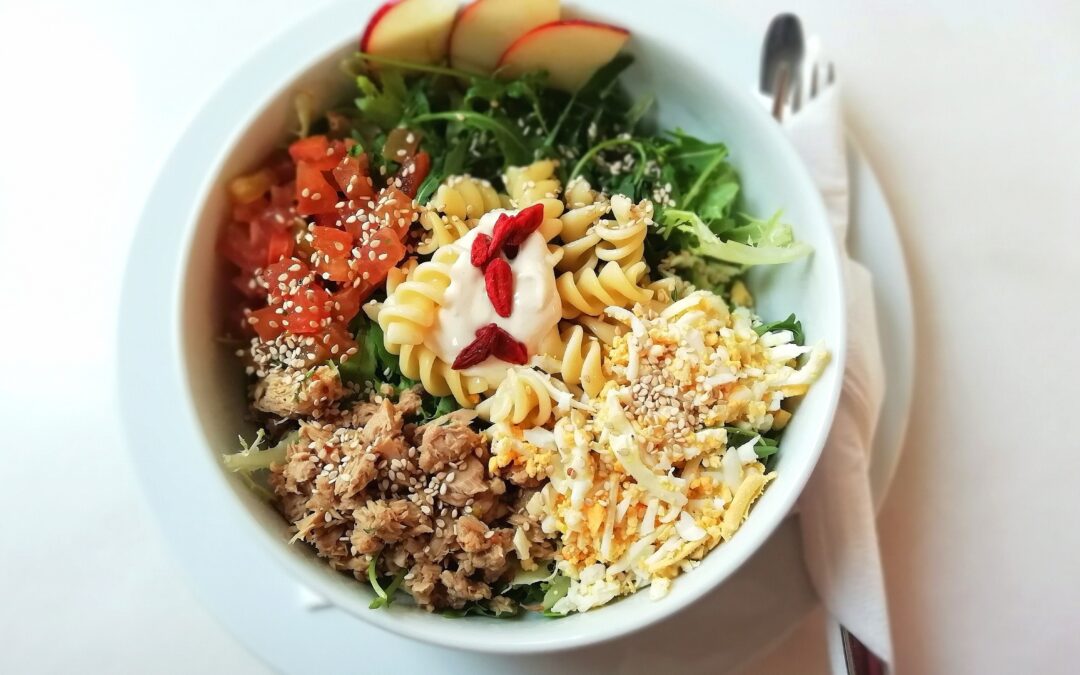In a world filled with constant stressors and demands, anxiety has become a widespread concern affecting millions of individuals. While therapy and medication play essential roles in managing this mental health condition, we often overlook the significant impact that diet can have on our mental health. In this blog post, we will explore the intriguing link between anxiety and diet, uncovering how the foods we consume can either fuel anxiousness or provide relief.

meditate to help manage anxiety
-
The Anxiety Culprits
To understand how diet influences anxiety, it’s essential to identify the culprits – foods that can exacerbate anxious feelings. These include:
a. Caffeine:
That morning cup of coffee might be your daily ritual, but excessive caffeine intake can increase anxiousness. It stimulates the central nervous system, leading to jitteriness and restlessness.
b. Sugar:
Sugary treats may provide a temporary mood boost, but they can also lead to blood sugar spikes and crashes, triggering mood swings and irritability.
c. Alcohol:
While a glass of wine may seem relaxing, excessive alcohol consumption disrupts sleep patterns and can contribute to anxiousness.
d. Highly Processed Foods:

avoid processed foods to prevent anxiety trigger
Processed foods often contain artificial additives and trans fats, which can affect neurotransmitters in the brain and lead to mood swings.
-
The Anxiety Busters
Now, let’s turn our attention to the heroes of this story – foods that can help reduce this health issue and promote a sense of calm. Incorporating these into your diet may work wonders:
a. Omega-3 Fatty Acids:
Found in fatty fish like salmon and walnuts, omega-3 fatty acids have been linked to reduced levels and improved mood.
b. Complex Carbohydrates:
Whole grains like brown rice, quinoa, and oats provide a steady release of energy, helping to stabilize blood sugar levels and mood.
c. Leafy Greens:
Spinach, kale, and other leafy greens are rich in magnesium, a mineral that may help alleviate symptoms.

eat nutritious food to fight anxiety
d. Probiotics:
Gut health is closely tied to mental health. Foods like yogurt and fermented foods contain probiotics that support a healthy gut microbiome.
e. Dark Chocolate:
In moderation, dark chocolate with high cocoa content can boost serotonin levels and provide a calming effect.
-
The Power of Balance
While certain foods can alleviate this condition, it’s crucial to strike a balance in your diet. Building a well-rounded meal plan that includes a variety of nutrients is key. Additionally, consider the following tips:
a. Hydration:
Dehydration can exacerbate feelings of anxiety. Ensure you’re drinking enough water throughout the day.

drink enough water to prevent anxiety
b. Mindful Eating:
Pay attention to how your body responds to different foods. Experiment with an elimination diet to identify trigger foods.
c. Consult a Professional for anxiety management:
If this mental health condition is a persistent issue, consult a registered dietitian or mental health professional to create a personalized dietary plan.
Your diet can significantly impact your anxiety levels. By being mindful of the foods you consume and making choices that support your mental well-being, you can take an active role in managing anxiety. Remember that what works for one person may not work for another, so it’s essential to listen to your body and seek professional guidance when needed. With the right approach, you can harness the power of nutrition to reduce anxiety and live a more balanced, tranquil life.

